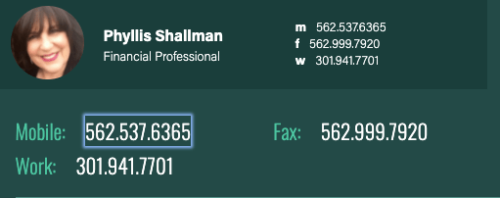
Read on if you ever find yourself struggling to stay afloat financially.
Do you ever feel like no matter how much money you make, it never seems like enough? You’re not alone. A recent survey found that more than half of middle-income families didn’t have three months of expenses saved.¹ Debt and spending can be out of control for many reasons—the economy, our upbringing, or even because we’re hardwired to want more. This article explores three bad habits that may be hurting your financial situation. You might be surprised by what they are!
Treating credit cards like free money. When you’re tempted to buy something and don’t have the cash, it’s easy to just use credit. But instant gratification can have serious consequences. Little by little, you may find yourself racking up more and more debt. Paying your monthly credit card bill can start requiring all of your cash flow… and maybe more. Yikes.
The solution? Limit your credit card usage as much as possible. Make a habit of only using your credit card for certain low-dollar items, like gas. If you can’t buy your impulse purchase in cash, go home!
Trying to buy happiness. It’s tempting to think that you’re going to be happy if you buy one thing or another. But what happens when the newness wears off? Suddenly, you have a closet full of clothes and shoes that really aren’t making you any happier! The same is true of houses, cars, gadgets, anything you can think of. Buying things to keep up appearances or just because you think they’ll make you fulfilled is a recipe for overspending on things that, ultimately, don’t matter.
The key is to find happiness beyond your material possessions. That’s no small task, and there’s no set road map for it. But it’s absolutely critical to find a source of meaning that isn’t tied to stuff and things. You could be happier—and more financially stable—for it.
Ignoring your financial situation. Let’s face it—finances can be scary! Overwhelming debt, paying for college, and feeling out of your depth are uncomfortable emotions. And ignoring and denying uncomfortable feelings is often a first line of defense.
But it’s a dangerous game. Ignoring what the numbers tell you can lead you deeper and deeper into financial instability. You could be setting up a much harder path for yourself in the future than if you tackled your financial situation now.
Tackling your financial fears isn’t always easy. It might require serious soul searching. Just know these three things…
Acknowledging the problem is the first step. Once you can admit that your finances need help, you’re ready to start making positive changes.
Seeking help is always wise. Whether it’s a friend, spouse, qualified counselor, or financial professional, enlisting help can give you the courage you need to face your fears.
You can do this! It might not feel like it, but you have what it takes to confront this challenge… and win! Don’t lose hope, and start moving forward.
Managing your money wisely requires more than knowing different techniques and strategies. It takes maturity. The more you invest in making improvements to your life overall, the better emotionally equipped you’ll be to navigate the world of personal finances.
¹ “A year after COVID, personal finances are not so grim for millions of Americans,” Jessica Menton, USA TODAY, Apr 9, 2021, https://www.usatoday.com/in-depth/money/2021/04/09/irs-stimulus-check-2021-third-covid-payment-unemployment-benefits/7015277002/
